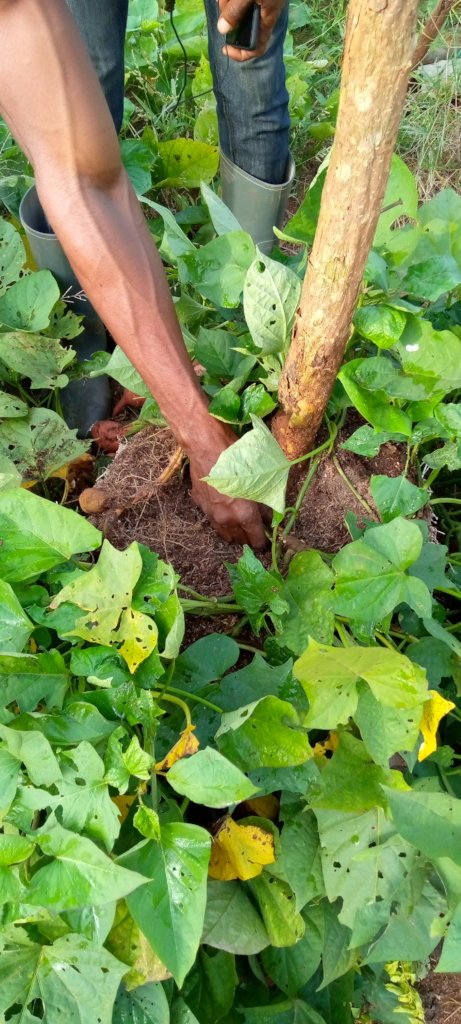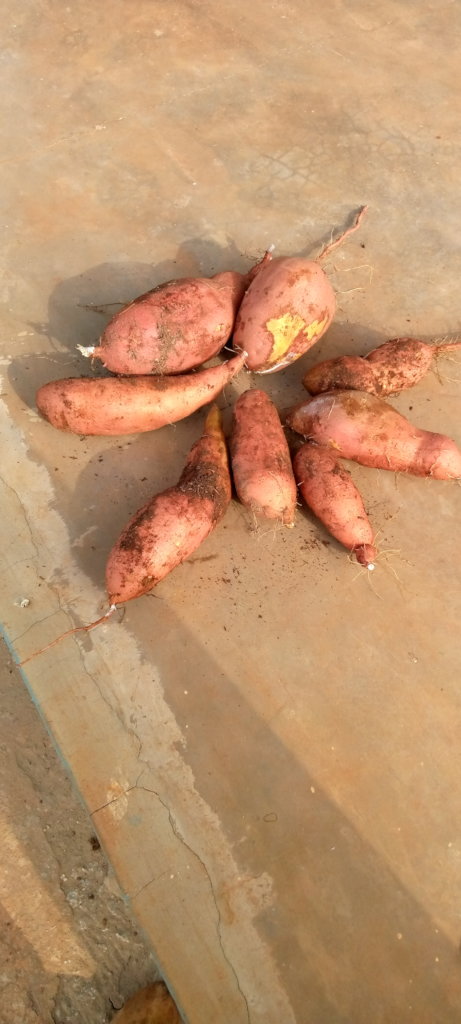By Benjamin Kusi | Ghana Country Director
Since 2018, the Self-Help International Women’s Empowerment Program has supported rice farmers in Adankwame, Ghana to improve their production practices so they can increase their crop yields. Through the program, the farmers are able to access micro-credit loans on time, buy inputs at relatively cheaper cost, and plant in time to catch the early rains.
With increased yields and profits, the women are able to afford nutritious food for their families, pay school fees and hospital bills, and provide for other household needs. They live happily with their families.
The increased rice production resulted in high volumes of rice husks that the farmers didn’t immediately need, so the rice millers resorted to burning the husks. This resulted in environmental pollution. Thick smoke could be seen kilometers away. Self-Help worked with producers to find another use for the rice husks, which cleared the pollution caused from burning them. The solution to this problem also helped solve another problem Self-Help was facing: improving orange-fleshed sweet potato cultivation.
In 2018, Self-Help also started a program to support pregnant and lactating mothers, the Growing Healthy Food, Growing Healthy Children (GHFGHC) program. The program provides postnatal counseling and guidance on how to grow and consume nutrient rich crops like orange-fleshed sweet potato (OFSP) and quality protein maize (QPM), a high protein maize variety.
OFSP was a relatively new crop for the women in the program to cultivate and consume. With education and training, the mothers in the program adapted and many adopted the crop. In the major rainy season of 2019, 40 out of 80 women planted OFSP, but unfortunately many of the women lost about 60% of their crops to millipede infestations. This lowered their interest in OFSP cultivation. Controlling millipedes in the soil using chemicals was costly, and the women could not afford the necessary products.
The Self-Help agriculture and nutrition teams worked together and came up with a compost made of rice husk and poultry droppings that supports OFSP cultivation very well. The yield obtained in 2020 using the compost was good, restoring the confidence of the women to go back into OFSP cultivation and consumption. The compost is a boost for container gardening as well. Empty cans, which for years have served as breeding grounds for mosquitoes, are becoming fertile grounds for the production of nutrient rich crops. With increased cultivation and consumption of OFSP and improved access to nutritious foods, Self-Help can continue to work with mothers to ensure that their children will be stronger and healthier.
Project reports on GlobalGiving are posted directly to globalgiving.org by Project Leaders as they are completed, generally every 3-4 months. To protect the integrity of these documents, GlobalGiving does not alter them; therefore you may find some language or formatting issues.
If you donate to this project or have donated to this project, you can receive an email when this project posts a report. You can also subscribe for reports without donating.
Support this important cause by creating a personalized fundraising page.
Start a Fundraiser
